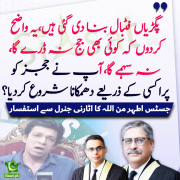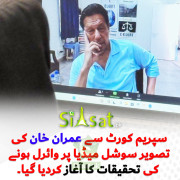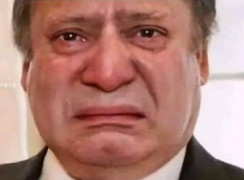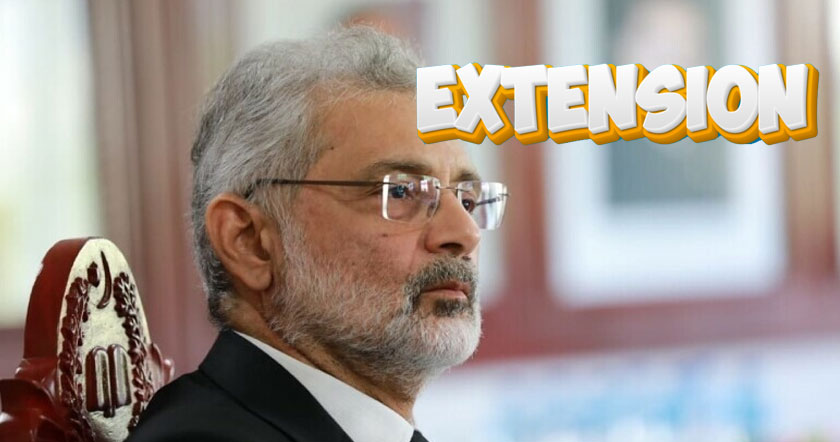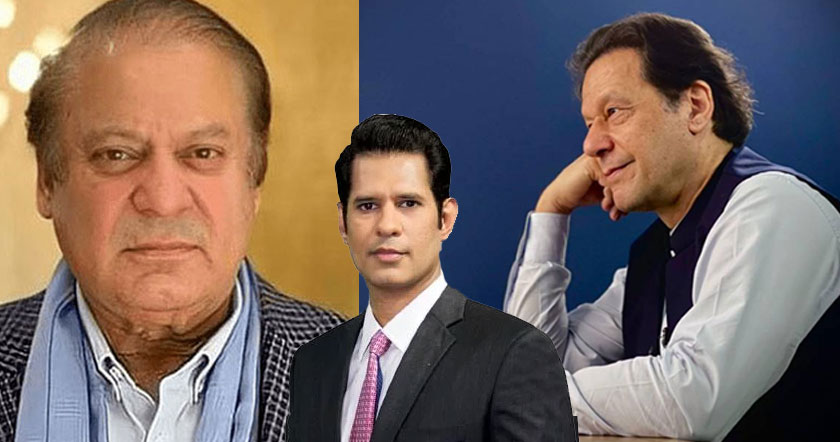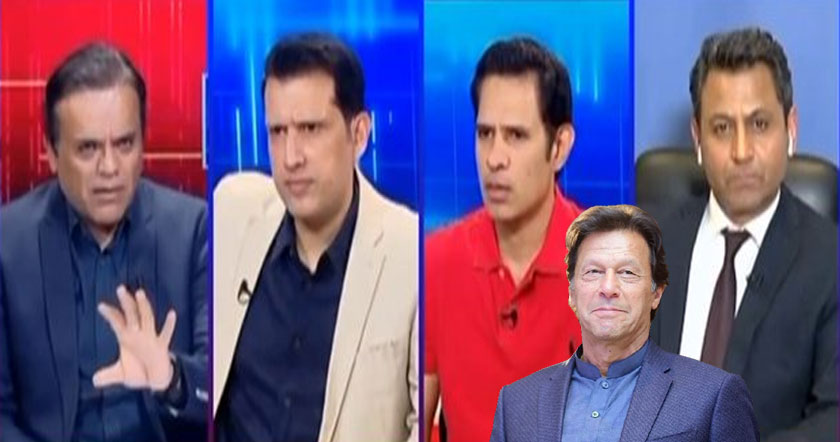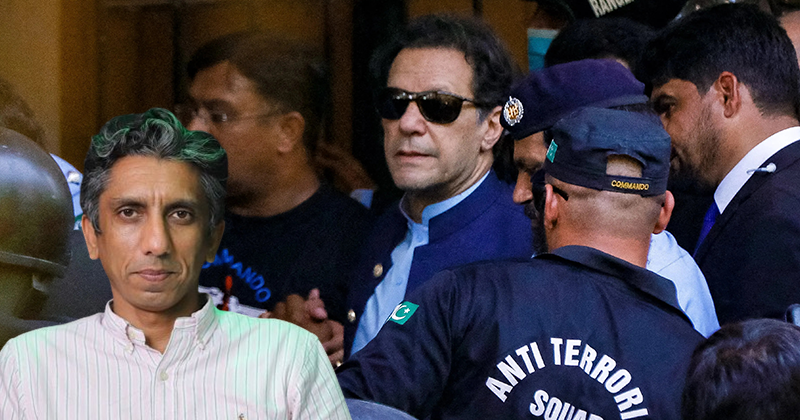The ulama and the rights of women
http://www.viewpointonline.net/the-ulama-and-the-rights-of-women.html
In my textual encounters, and now sadly Youtube encounters, with the Ulama and their explanations of womens rights in Islam, I have noticed some interesting interpretive practices that, in my view, tend to privilege a phallocentric view of the Muslim sacred.
Almost all of these scholars believe that the message of the Quran is hidden behind the words, and if, somehow, one knew enough Arabic, one could, so to speak, interpret the mind of God. In this process of interpretation, one is led to believe that the scholar is just disinterestedly extracting the hidden meaning in an objective encounter with the text. Sadly, these practices go counter to Islams own traditions of hermeneutics of the text and the postlinguisitc turn aspects of textual interpretation. What this objective retrieval of meaning assumes, then, is that, somehow, in this encounter with the text, the reader can leave his own subjectivityand its attendant biasesbehind and find out the true hidden meaning of the sacred text.
Those of us involved in the workings of literary theory are painfully aware that all acts of reading are highly contaminated and never really unmotivated. A text comes into being at the moment a reader reads it: interpretation, therefore, is an agential act, an act that involves the act of reading and interpretation by a reading subject.
This reading subjector the subject of readingalso, we are told, brings his own biases and prejudices to the act of reading. The meaning thus construed is a combination of what is offered in a text and how that is filtered through the readers own preexisting attitudes toward the act of interpretation. That is why, Stanley Fish, a leading Reader response critic in the US, can explain the range of differences in interpretations of same text by different readers. According to Fish, the variety of interpretation occurs because the readers belong to a certain interpretive community and bring to the act of reading the practices privileged and normalized by their particular interpretative community.
So, when our Ulama read and interpret the gender roles in the Quran, a part of their interpretation comes from the words on the page but a large part of it also resides in their own preexisting biases as male gendered subjects in a Muslim society.
Almost all the major Ulama in Pakistan go to Surah Al-Nisa to expound their theories of inherent gender inequality as inscribed by the Quran. The most cited ayah is verse 34, a fragment of which is often cited: Arrijaal-o Qawwameea Alan-nisa. I will explain my point with specific reference to one particular interpretation of it by late Doctor Israr Ahmed, who, by the way, prided himself on his mastery of Arabic and often derided his opponents for their lack of understanding of the subtleties of Arabic language.
Doctor Israr translates this thusly: Men are rulers over women or as he would say it in his flawless Urdu, mard aurat per hakim hain. Now, those of us who are familiar with Arabic know that this is a gross reduction of the polysemy of the word Qawwaam. And it is this reduction that is crucial here, for it is made possible by what the interpreter hopes to privilege in the act of interpreting the text: a certain specific, hierarchical meaning of gendered roles in the Muslim society. This interpretation is crucial to Doctor Isrars argument, for only then can he posit that women cannot be rulers, and not even members of parliament. I am not sure if he later revised his position, but I am just using his interpretation as one specific type of male-centric interpretation.
Now, even the official copy of the Quran produced by the Kingdom of Saudi Arabia [the so-called Wahabis] gives a more fluid translation of the verse and the noun that Doctor Israr translates as Haakim-Rulers. The official English translation of the verse in the Saudi-produced translation is as follows:
Men are the protectors
And maintainers of women . . .
Furthermore, the translators of the Saudi version also provide a footnote to this particular sign/word in the ayah: Qawwaam: one who stands firm in anothers business, protects his interests, and looks after his affairs. . . (219).
Incidentally, the copy of the Quran that I am citing from was given to me as the officially accepted translation by the local leader of Doctor Isrars organization in Quetta in 1994. So, while Doc. Israr himself was explaining the word Qawwaam as rulers, the official translation being provided by his organization was giving us a completely different reading of the term. Now, we all know that interpretation is always practiced within its prehistory along with other past and present translations of the scared. In fact, an important role of a scholar is to position his or herself within the larger debates on a certain topic. But, sadly, we are not so lucky in this regard when it comes to our Ulama. Most of our Ulama offer their interpretations of the sacred as original and originary, as if no work had been done before them. When Doctor Israr offers his interpretations of the sacred, it is with this sadly misplaced hubris: one is led to believe that the text had laid dormant for fourteen hundred years, until someone such as Doctor Israr came along and opened it up for us and decided its meaning by eliminating all insipient and obvious polysemous traces of the text.
There is however, a different interpretation of this particular Surah and the specific ayah very close to our time and space: namely in the work of Maulana Mumtaz Ali, who in 1898 published a book called Haqooq Al Niswan, The Rights of Women [Those interested in further exploration of this book can download it at http://archive.org].
In this book, Maulana Mumtaz Ali provides a line-by-line refutation of all metaphysical and logical claims about womens inequality. He also accomplishes this by privileging a more nuanced and apt reading of the word Qawwaam. I provide a brief citation below in my translation:
The most convincing Quranic proof of that they offer [in favor of male superiority] is ayah 34 from Surah Alnisa. They translate it thusly: Men are rulers over women. . . . Qawwaam is a saturated signifier: the person who is too busy in arranging and organizing the affairs of a business [karobaar] is considered Qawwaam. . . As men have to earn to provide for women, they are therefore in the role of Qawwameen. (17)
This, of course, is a very rough translation and does not provide the whole range of discussion that Maulana Ali mobilizes to make a case for womens equality. Also important to note is that his interpretations has huge socio-political consequences. By opening a rhetorical space for women to enter the public sphere, Mumtaz Ali is able to foster and support the womens education movement as a result of which the Muslim women of India enter the public sphere, access education, and eventually become active members of the Indian society.
In opposition to this, Doctor Isrars interpretation is an attempt at reinscribing the figure of the woman back into the private sphere. In fact, in another of his lectures he insists that he is not opposed to women performing productive labor as long as they are provided work in the privacy of their homes.[1] This of course is a perfect recipe for the exploitation of women at the hands of international capital, which, by the way, relies quite heavily on these forms of privatized feminine labor.
Thus, while one scholar's interpretation creates a liberatory space for women and enables us to create a more equal and just society, another scholar wants us to accept the preexisting gender inequalities as natural and divinely sanctioned. In both these cases the meaning of the text is not simply drawn from the text but is rather construed through the prejudices and expectations that the reader/ scholar brings to the sacred text.
So, in a nutshell, what I am suggesting is that we as readers of sacred texts should read them with a deeper and more expansive knowledge of prior interpretations and we should also understand that all acts of interpretation have the politics of the reader/scholar pre-inscribed in the act of reading itself.
That women are neither ontologically inferior nor tools within the male instrumental logic is an obvious statement of fact to me. And not because I live in the west and have lost touch with my roots (whatever that means), but because the whole system of Islamic justice will fall apart if women did not posses an equal ontological status to men. For is she is less than man and was created for his pleasure then the rules of justice cannot apply to her similarly as they apply to men. The rules of justice presuppose a uniform level of agency: that is why we do not punish those who are physically forced into crime through fear of violence. So, if woman is incapable of deeper thought, or total agency, then all her actions and crimes must be treated as those of someone not in control of her senses, or as someone lacking basic intelligence of a fully realized human being: this would render all acts by women as harmless and beyond the reach of law under rules of incompetency.
Also, in that other world, if woman is just an appendage and a ward of men, then she cannot be held accountable for her sins as a fully realized human being and thus not subject to divine judgment. It is only when the Muslim scholars accept female personhood as equal to man that they can justify and stabilize the Islamic system of corporeal and spiritual law, or else the entire edifice of Shariah is built on a shaky and unsound foundation.
End Notes:
[1] I am citing these quotes from memory. Readers can find Dr. Isrars writings on this website dedicated to his life and work: http://www.drisrarahmed.com/.
Author of Constructing Pakistan (Oxford UP, 2010) Masood Ashraf Raja is an Assistant Professor of Postcolonial Literature and Theory at the University of North Texas, United States and the editor of Pakistaniaat: A Journal of Pakistan Studies. His critical essays have been published in journals including South Asian Review, Digest of Middle East Studies, Caribbean Studies, Muslim Public Affairs Journal, and Mosaic. He is currently working on his second book, entitled Secular Fundamentalism: Poetics of Incitement and the Muslim Sacred.
http://www.viewpointonline.net/the-ulama-and-the-rights-of-women.html
In my textual encounters, and now sadly Youtube encounters, with the Ulama and their explanations of womens rights in Islam, I have noticed some interesting interpretive practices that, in my view, tend to privilege a phallocentric view of the Muslim sacred.
Almost all of these scholars believe that the message of the Quran is hidden behind the words, and if, somehow, one knew enough Arabic, one could, so to speak, interpret the mind of God. In this process of interpretation, one is led to believe that the scholar is just disinterestedly extracting the hidden meaning in an objective encounter with the text. Sadly, these practices go counter to Islams own traditions of hermeneutics of the text and the postlinguisitc turn aspects of textual interpretation. What this objective retrieval of meaning assumes, then, is that, somehow, in this encounter with the text, the reader can leave his own subjectivityand its attendant biasesbehind and find out the true hidden meaning of the sacred text.
Those of us involved in the workings of literary theory are painfully aware that all acts of reading are highly contaminated and never really unmotivated. A text comes into being at the moment a reader reads it: interpretation, therefore, is an agential act, an act that involves the act of reading and interpretation by a reading subject.
This reading subjector the subject of readingalso, we are told, brings his own biases and prejudices to the act of reading. The meaning thus construed is a combination of what is offered in a text and how that is filtered through the readers own preexisting attitudes toward the act of interpretation. That is why, Stanley Fish, a leading Reader response critic in the US, can explain the range of differences in interpretations of same text by different readers. According to Fish, the variety of interpretation occurs because the readers belong to a certain interpretive community and bring to the act of reading the practices privileged and normalized by their particular interpretative community.
So, when our Ulama read and interpret the gender roles in the Quran, a part of their interpretation comes from the words on the page but a large part of it also resides in their own preexisting biases as male gendered subjects in a Muslim society.
Almost all the major Ulama in Pakistan go to Surah Al-Nisa to expound their theories of inherent gender inequality as inscribed by the Quran. The most cited ayah is verse 34, a fragment of which is often cited: Arrijaal-o Qawwameea Alan-nisa. I will explain my point with specific reference to one particular interpretation of it by late Doctor Israr Ahmed, who, by the way, prided himself on his mastery of Arabic and often derided his opponents for their lack of understanding of the subtleties of Arabic language.
Doctor Israr translates this thusly: Men are rulers over women or as he would say it in his flawless Urdu, mard aurat per hakim hain. Now, those of us who are familiar with Arabic know that this is a gross reduction of the polysemy of the word Qawwaam. And it is this reduction that is crucial here, for it is made possible by what the interpreter hopes to privilege in the act of interpreting the text: a certain specific, hierarchical meaning of gendered roles in the Muslim society. This interpretation is crucial to Doctor Isrars argument, for only then can he posit that women cannot be rulers, and not even members of parliament. I am not sure if he later revised his position, but I am just using his interpretation as one specific type of male-centric interpretation.
Now, even the official copy of the Quran produced by the Kingdom of Saudi Arabia [the so-called Wahabis] gives a more fluid translation of the verse and the noun that Doctor Israr translates as Haakim-Rulers. The official English translation of the verse in the Saudi-produced translation is as follows:
Men are the protectors
And maintainers of women . . .
Furthermore, the translators of the Saudi version also provide a footnote to this particular sign/word in the ayah: Qawwaam: one who stands firm in anothers business, protects his interests, and looks after his affairs. . . (219).
Incidentally, the copy of the Quran that I am citing from was given to me as the officially accepted translation by the local leader of Doctor Isrars organization in Quetta in 1994. So, while Doc. Israr himself was explaining the word Qawwaam as rulers, the official translation being provided by his organization was giving us a completely different reading of the term. Now, we all know that interpretation is always practiced within its prehistory along with other past and present translations of the scared. In fact, an important role of a scholar is to position his or herself within the larger debates on a certain topic. But, sadly, we are not so lucky in this regard when it comes to our Ulama. Most of our Ulama offer their interpretations of the sacred as original and originary, as if no work had been done before them. When Doctor Israr offers his interpretations of the sacred, it is with this sadly misplaced hubris: one is led to believe that the text had laid dormant for fourteen hundred years, until someone such as Doctor Israr came along and opened it up for us and decided its meaning by eliminating all insipient and obvious polysemous traces of the text.
There is however, a different interpretation of this particular Surah and the specific ayah very close to our time and space: namely in the work of Maulana Mumtaz Ali, who in 1898 published a book called Haqooq Al Niswan, The Rights of Women [Those interested in further exploration of this book can download it at http://archive.org].
In this book, Maulana Mumtaz Ali provides a line-by-line refutation of all metaphysical and logical claims about womens inequality. He also accomplishes this by privileging a more nuanced and apt reading of the word Qawwaam. I provide a brief citation below in my translation:
The most convincing Quranic proof of that they offer [in favor of male superiority] is ayah 34 from Surah Alnisa. They translate it thusly: Men are rulers over women. . . . Qawwaam is a saturated signifier: the person who is too busy in arranging and organizing the affairs of a business [karobaar] is considered Qawwaam. . . As men have to earn to provide for women, they are therefore in the role of Qawwameen. (17)
This, of course, is a very rough translation and does not provide the whole range of discussion that Maulana Ali mobilizes to make a case for womens equality. Also important to note is that his interpretations has huge socio-political consequences. By opening a rhetorical space for women to enter the public sphere, Mumtaz Ali is able to foster and support the womens education movement as a result of which the Muslim women of India enter the public sphere, access education, and eventually become active members of the Indian society.
In opposition to this, Doctor Isrars interpretation is an attempt at reinscribing the figure of the woman back into the private sphere. In fact, in another of his lectures he insists that he is not opposed to women performing productive labor as long as they are provided work in the privacy of their homes.[1] This of course is a perfect recipe for the exploitation of women at the hands of international capital, which, by the way, relies quite heavily on these forms of privatized feminine labor.
Thus, while one scholar's interpretation creates a liberatory space for women and enables us to create a more equal and just society, another scholar wants us to accept the preexisting gender inequalities as natural and divinely sanctioned. In both these cases the meaning of the text is not simply drawn from the text but is rather construed through the prejudices and expectations that the reader/ scholar brings to the sacred text.
So, in a nutshell, what I am suggesting is that we as readers of sacred texts should read them with a deeper and more expansive knowledge of prior interpretations and we should also understand that all acts of interpretation have the politics of the reader/scholar pre-inscribed in the act of reading itself.
That women are neither ontologically inferior nor tools within the male instrumental logic is an obvious statement of fact to me. And not because I live in the west and have lost touch with my roots (whatever that means), but because the whole system of Islamic justice will fall apart if women did not posses an equal ontological status to men. For is she is less than man and was created for his pleasure then the rules of justice cannot apply to her similarly as they apply to men. The rules of justice presuppose a uniform level of agency: that is why we do not punish those who are physically forced into crime through fear of violence. So, if woman is incapable of deeper thought, or total agency, then all her actions and crimes must be treated as those of someone not in control of her senses, or as someone lacking basic intelligence of a fully realized human being: this would render all acts by women as harmless and beyond the reach of law under rules of incompetency.
Also, in that other world, if woman is just an appendage and a ward of men, then she cannot be held accountable for her sins as a fully realized human being and thus not subject to divine judgment. It is only when the Muslim scholars accept female personhood as equal to man that they can justify and stabilize the Islamic system of corporeal and spiritual law, or else the entire edifice of Shariah is built on a shaky and unsound foundation.
End Notes:
[1] I am citing these quotes from memory. Readers can find Dr. Isrars writings on this website dedicated to his life and work: http://www.drisrarahmed.com/.
Author of Constructing Pakistan (Oxford UP, 2010) Masood Ashraf Raja is an Assistant Professor of Postcolonial Literature and Theory at the University of North Texas, United States and the editor of Pakistaniaat: A Journal of Pakistan Studies. His critical essays have been published in journals including South Asian Review, Digest of Middle East Studies, Caribbean Studies, Muslim Public Affairs Journal, and Mosaic. He is currently working on his second book, entitled Secular Fundamentalism: Poetics of Incitement and the Muslim Sacred.


